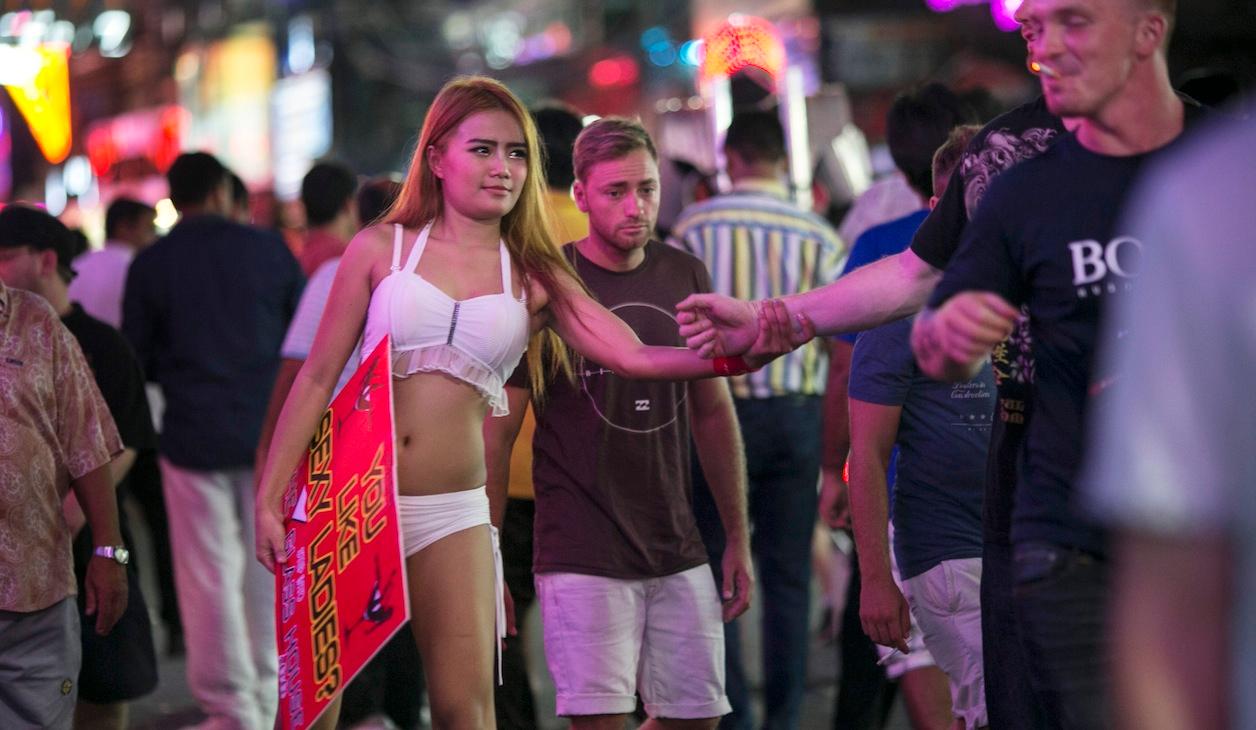Myanmar braces for a sleazier breed of tourist
Scene of debauchery in Pattaya, Thailand—precisely the sort of scene Myanmar wants to avoid.
BANGKOK, Thailand — There were few perks to the xenophobia that permeated Myanmar’s totalitarian junta for decades. But there was at least one: it kept the scuzziest tourists at bay.
Much of Myanmar (also called Burma) is mesmerizing in its beauty. It’s also now easier to visit than ever. The current government has kicked down many of the hurdles that kept outsiders away during a long era of despotic army rule, which began to recede about five years ago.
But as one of Myanmar’s generals once observed, “when you open the windows for fresh air, flies sometimes get in.” And in Southeast Asia, that can mean anything from sex tourists to drunken backpackers.
Tourism is exploding in Myanmar like never before. The government is targeting 4.5 million tourists this year, a quintupling of the number just five years ago. A new report, however, warns that Myanmar is “poorly prepared” to handle this flood of visitors.
The report, by the Myanmar Centre for Responsible Business, suggests developing Myanmar as a “destination for smaller numbers of high-spending tourists looking for an experience that makes Myanmar special.” That is an alternative to simply seeking to jack up the number of arrivals. Instead, the report suggests that the tourism sector “reflect on lessons learnt from elsewhere in Asia.”
Those hard-learned lessons are most evident places such as Pattaya, a seaside town in Thailand that has been consumed by sleaze.
Or Vang Vieng, a party town in the Laotian jungle infamous for cheap drugs, river tubing and backpackers partying so hard they end up injured or dead.
Or Phnom Penh, Cambodia’s capital, where much of the downtown promenade buzzes with hostess bars and pushy drug dealers — all catering to foreigners.
There is nothing quite like this in Myanmar (except, perhaps, for a few dark spots run by militias on the far-flung Chinese border.)
In the mainstream touristed areas, the country has little to offer Western travelers who want to drink by day and haunt brothels by night. The long spell of military rule effectively sealed off the country and preserved a conservative Buddhist propriety that is hard to find elsewhere in Asia. Prostitution certainly exists but is largely confined to scattered karaoke joints and nightclubs.
Yet the potential for a slide into openly debauched tourism is there.
In impoverished Myanmar, dollars go very far. Arrests for crimes both minor (prostitution) and major (child prostitution) can potentially be avoided by bribing the police. And in a nation rife with child labor and guerrilla war, the prospects for a well-regulated prostitution sector that protects sex workers and routinely screens for disease are extremely dim.
Already in Yangon, the largest and most-visited city, high-end hotels have filled up with more sex workers seeking foreign men. Ethical tourism advocates fear a future Myanmar with “more prostitutes than monks.” Even the party of Aung San Suu Kyi, the Nobel Peace Prize-winning daughter of Myanmar’s independence hero, has spoken about a “callous expectation of sex tourists” and the specter of “social exploitation.”
This would mark an unfortunate return to a previous era, before the military’s reign, when English colonialists lorded over the country. There was a time in the early 20th century when foreign men sustained what was,according to one academic, a larger prostitution market in Myanmar than any other in British-ruled India.
Tell us about your experience accessing The World
We want to hear your feedback so we can keep improving our website, theworld.org. Please fill out this quick survey and let us know your thoughts (your answers will be anonymous). Thanks for your time!
